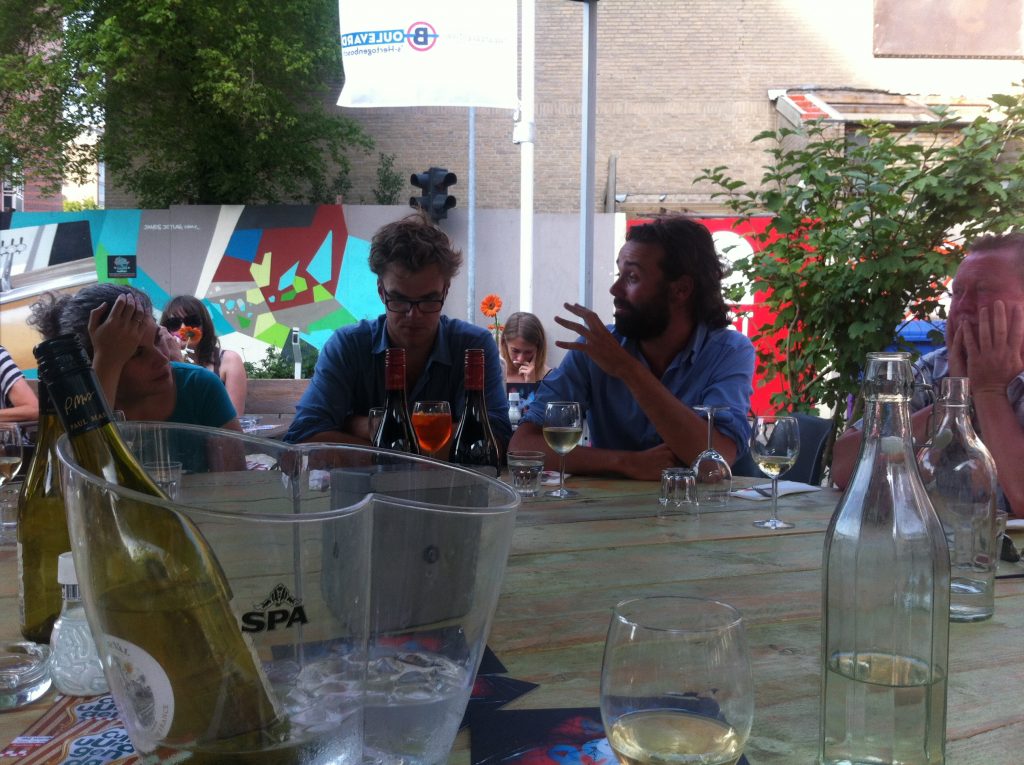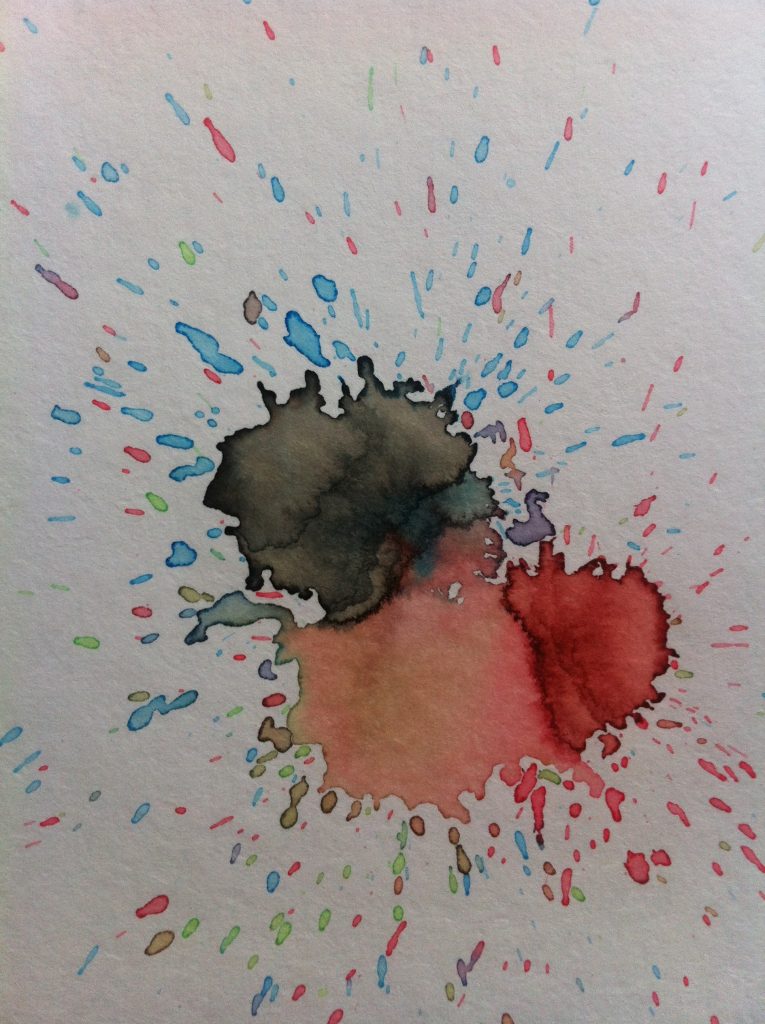the atmosphere
It's 30 degrees in Den Bosch. People with headphones on clap for something we, the passers-by, do not see. At a shopping centre, girls with masks roll on the ground. There is commotion everywhere. Festival Boulevard is in full swing and the whole city seems to join in. The terraces are full and the mood is high. I make my way through the crowd to the Mariapavilion, the alternative meeting place of dining guests of the TRAMKADE, which is due to asbestos evacuated and for which emergency locations had to be hastily sought and found.
dinner
On an atmospheric terrace in front of the former sanatorium, I, along with nine other visitors, slide in to eat and meet FC Bergman. Bart Hollanders and Thomas Verstraeten, on behalf of the six-member collective, are the chosen ones (or the pick) to be table hosts. We introduce ourselves to each other uneasily. But the food is good, the white wine is cold and the gentlemen actors amiable.

The guests are mainly people from Bosschen who have seen something from the company before. After exploratory questions like 'how does a collective work', 'how are you subsidised' 'where do you get your inspiration', the conversations fan out from Hans Kesting's salary to the collection of the museum in Schiedam. The Bergmen endure it gingerly and even linger for dessert. A machine records the tone of our conversation and we all receive a colourful snapshot of our dinner.

We are given the 'inside' tip by the actors to sit a bit in the front. We all take that very seriously, as an hour later all nine of us storm out of the bus at the large sports and events hall where 'The Land Nod' is showing.
the performance
Playing in the Rubens Room at The Royal Museum of Fine Arts in Antwerp could not be done. Rebuilding the - under renovation - full-size room did, including wooden panelling, cornices and a replica of Rubens' The Lance region (Christ on the Cross). The high stately space gives the actors a pleasant kind of nothingness that you might experience in many a museum near a large(er) canvas. You realise that there are things in this world that are bigger, timelier and more elusive than you can grasp as an individual person.
Fortunately, FC Bergman does not fall into the trap of trying to put up a historically correct and coherent story about the history of this famous Rubens hall. A series of poetic and slapstick scenes alternate. And the loud chattering audience ("oh look what he's doing with that ladder") slowly hushes.
At a rippling pace, a series of encounters take place that you would expect to find in a madhouse rather than a museum. The contradiction between the museum room, the real space, and the imaginative games and images that nowhere become sacred, gives me as a spectator the freedom to let my mind wander. If I ever find myself in the real Rubens hall again, I will not fail to make a sneaky hop.
The show can still be seen on 14 and 15 August at Festival Boulevard and afterwards in Rotterdam and Groningen.
